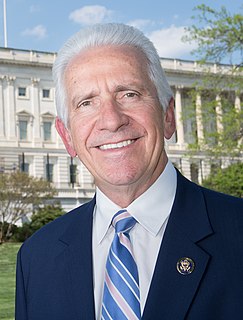A Quote by Martin Winterkorn
Russia has the largest reserves of natural resources, including iron and natural gas. The market will develop in the long term, and the VW Group will benefit from it.
Related Quotes
Today, natural gas now outstrips coal as the leading provider of electricity in America. If this is as big as people believe it is, natural gas will soon be powering trucks and marine ships. Maybe even standard commercial cars that people use at home through compressed natural gas, other gas to liquids. The potential is there for more energy independence by America and a reliance on cleaner fuel - natural gas emits half as much as coal, in terms of carbon emissions. That's a real bounty.
Our supplies of natural resources are not finite in any economic sense. Nor does past experience give reason to expect natural resources to become more scarce. Rather, if history is any guide, natural resources will progressively become less costly, hence less scarce, and will constitute a smaller proportion of our expenses in future years.

































